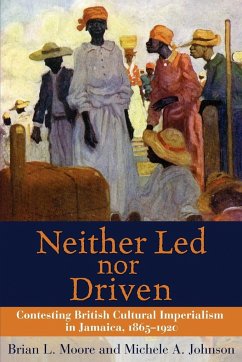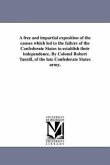This superbly written book examines the cultural evolution of the Jamaican people after the explosive uprising at Morant Bay in 1865. It offers an analysis of the cultural tapestry fashioned by the Jamaican people and the specific methods used by British imperial legislators and the cultural elite in the attempt to inculcate order and control and to build a new society in Jamaica founded on the principles of Victorian Christian morality and British imperial ideology. Moore and Johnson convincingly demonstrate that this attempt resulted in a sustained attack on everything that was perceived to be of African origin and the glorification of Christian piety, Victorian mores, and a Eurocentric "idealized" family life and social hierarchies. They discuss, in rich detail, the levels of engagement among the cultural traditions and argue compellingly that the Jamaican people, despite encouragement and pressure, were determined to define their own cultural paths; they would neither be led, nor would they be driven. "This is an impressive volume, cogently argued, limpid in the clarity of the writing and solidly based on a mastery of a wide range of relevant sources. It is a major contribution to the history of Jamaica, to the cultural history of the Caribbean and to the history of blacks throughout the African diaspora."--Howard Johnson, University of Delaware








